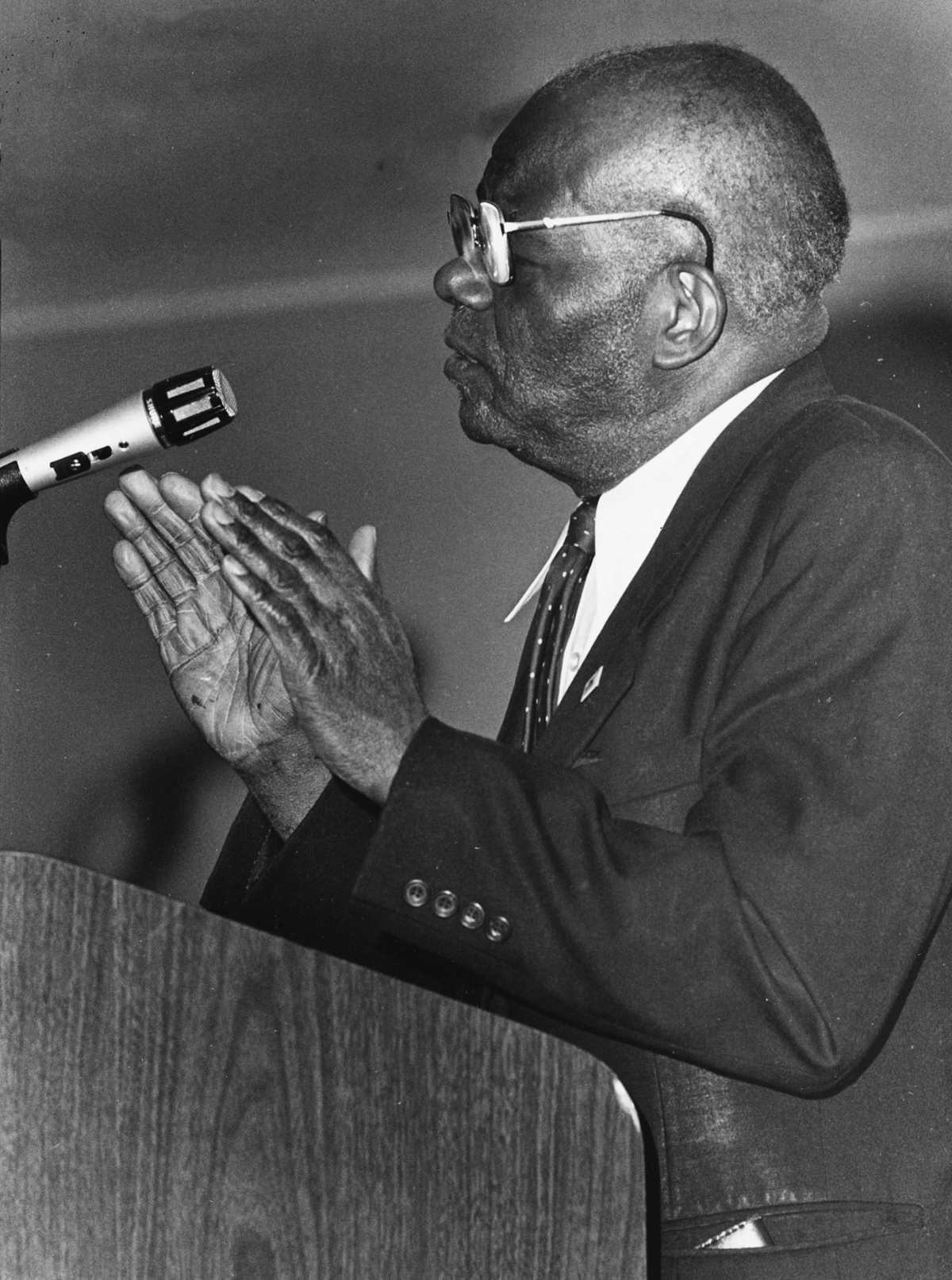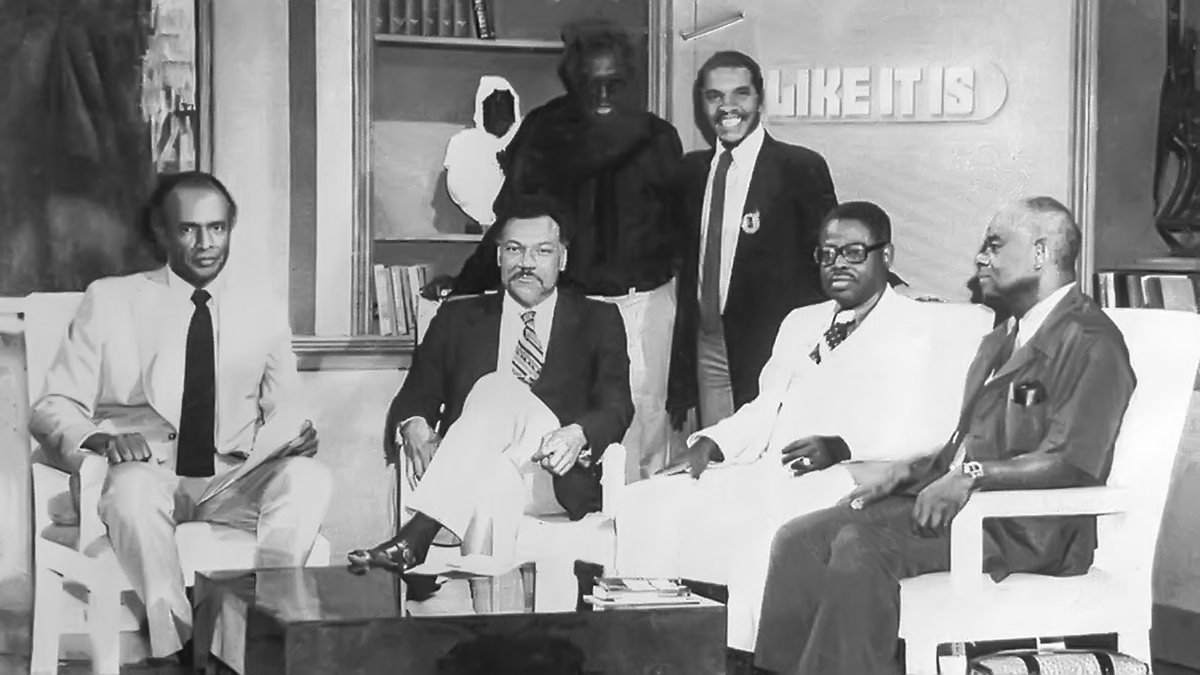Dr. John Henrik Clarke was a Pan-Africanist writer, historian, professor, and a pioneer in the creation of Africana studies and professional institutions in academia starting in the late 1960s.
Born John Henry Clark on January 1, 1915, in Union Springs, Alabama, John left the family farm in Columbus in 1933 to Harlem, New York during the period some historians refer to as; The Great Migration. This period refers to the time between 1910 and 1970 when African Americans moved from the southern states to the northern states in search of work and a better quality of life. There he pursued scholarship and activism. He renamed himself, John Henrik, after the rebel Norwegian playwright Henrik Ibsen and added an “e” to his surname, spelling it “Clarke.” The reasoning for this is unknown, as John did not document this change in any of his personal diaries.
Career
Arriving in Harlem at the age of 18 in 1933, Clarke developed as a writer and lecturer during the Great Depression years, becoming a part of the movement we now understand as the Harlem Renaissance.
Much of this development came through Clarke becoming a member of several study circles such as the Harlem History Club and the Harlem Writers’ Workshop.
However, formal education was not something Clarke completed as he studied intermittently at New York University, Columbia University, Hunter College, the New School of Social Research, and the League for Professional Writers. He was an autodidact whose mentors included the scholar Arturo Alfonso Schomburg. From 1941 to 1945, Clarke served as a non-commissioned officer in the United States Army Air Forces, ultimately attaining the rank of master sergeant.
In the post-World War II era, there was new artistic development, with small presses and magazines being founded and surviving for brief times. Writers and publishers continued to start new enterprises: Clarke was the co-founder of the Harlem Quarterly (1949–51), book review editor of the Negro History Bulletin (1948–52), associate editor of the magazine, Freedomways, and a feature writer for the Black-owned Pittsburgh Courier. Clarke taught at the New School for Social Research from 1956 to 1958. Traveling in West Africa in 1958–59, he met Kwame Nkrumah, whom he had mentored as a student in the US, and was offered a job working as a journalist for the Ghana Evening News. He also lectured at the University of Ghana and elsewhere in Africa, including in Nigeria at the University of Ibadan.

Academic Career
Clarke was the founding chairman of the Department of Black and Puerto Rican Studies at Hunter College, a subsidiary of City University of New York between 1969 and 1986. Additionally, Clarke was named as the Carter G. Woodson Distinguished Visiting Professor of African History at Cornell University’s Africana Studies and Research Center, founding the African Heritage Studies Association along with with the Black Caucus of the African Studies Association in 1968- two causes that helped him become a founding chairman.
This jump from ‘farm-boy’ to ‘professional academic’ is noted in The New York Times obituary of Jon, which read; the activist’s ascension to professor emeritus at Hunter College was “unusual… without the benefit of a high school diploma, let alone a Ph.D.,” while acknowledging that “nobody said Professor Clarke wasn’t an academic original.” In 1994, Clarke earned a doctorate from the non-accredited Pacific Western University (now California Miramar University) in Los Angeles, having earned a bachelor’s degree there in 1992.
Legacy
John Henrick Clarke’s greatest period of influence resides in the 1960s when he was a prominent intellectual during the Black Power Movement, advocating studies on the African-American experience and the place of Africans in world history. He challenged the views of academic historians and helped shift the way African history was studied and taught.
Clarke was “a scholar devoted to redressing what he saw as a systematic and racist suppression and distortion of African history by traditional scholars.” And accused his detractors of having Eurocentric views. His writing included six scholarly books and many scholarly articles. He also edited anthologies of writing by African Americans, as well as collections of his own short stories. In addition, he published general interest articles.

In one especially heated controversy, Clarke edited and contributed to an anthology of essays attacking William Styron, an American Novelist who wrote the novel The Confessions of Nat Turner; the leader of the Virginia slave revolt in 1831.
Besides teaching at Hunter College and Cornell University, Clarke founded professional associations to support the study of Black culture. He was a founder with Leonard Jeffries and the first president of the African Heritage Studies Association, which supported scholars in areas of history, culture, literature, and the arts. He was a founding member of other organizations to support work in black culture: the Black Academy of Arts and Letters and the African-American Scholars’ Council.
Honors
- 1985 – The faculty of the Africana Studies and Research Center at Cornell University named the John Henrik Clarke Library after him.
- 1995 – Carter G. Woodson Medallion, Association for the Study of Afro-American Life and History.
- 2002 – Molefi Kete Asante listed Dr. John Henrik Clarke as one of his 100 Greatest African Americans.

